You know the feeling, right? You’re in the middle of sharing a story, explaining an idea, or just trying to get a word in edgewise, and then—bam! Someone cuts you off like a reckless driver on the highway. It’s frustrating, disrespectful, and leaves you wondering if you should invest in a “Do Not Interrupt” sign.
But fear not, my friend. I’ve got your back with 35 clever comebacks that’ll make even the most notorious interrupters think twice before stealing your spotlight again.
35 Comebacks For People Who Interrupt When You Are Talking
1. “I’m sorry, did the middle of my sentence interrupt the beginning of yours?”
This one’s a classic. It’s a polite way of calling out the interruption while reminding the other person that you were, in fact, already speaking. It’s like a verbal tap on the shoulder that says, “Excuse me, I was here first.”
2. “I wasn’t finished, but please, go on. I’m sure what you have to say is much more important.”
Nothing like a little sarcasm to get your point across. This comeback highlights the interrupter’s rudeness while also putting them on the spot. They’ll either realize their mistake and apologize, or they’ll keep talking and reveal their true colors.
3. “I’m sorry, I didn’t realize I was invisible. Can you see me now?”
Sometimes, being interrupted can make you feel like you’re not even there. This comeback brings attention to that feeling in a humorous way. It’s a lighthearted jab that might just make the interrupter realize they’ve been treating you like a ghost.
4. “Hold that thought. Let me just grab my notebook so I can jot down all these fascinating insights you keep interrupting me with.”
This one’s perfect for those people who seem to think their ideas are the only ones that matter. By pretending to take notes on their interruptions, you’re subtly pointing out how often they’re cutting you off. Plus, it might make them pause and consider whether their thoughts are really worth interrupting for.
5. “I’m sorry, I didn’t realize this was a tag-team conversation. When’s my turn to tap in?”
If you’re dealing with a serial interrupter, this comeback can help you regain control of the conversation. By comparing it to a tag-team match, you’re reminding them that dialogue involves taking turns, not just one person dominating the floor.
6. “I’m sorry, I was in the middle of a sentence. Do you need a reminder on how conversations work?”
Sometimes, you just have to call it like it is. This comeback directly addresses the interruption and questions the interrupter’s social skills. It’s a bit more confrontational, but it can be effective for those who need a blunt wake-up call.
7. “Wow, you must be a mind reader! How else could you know exactly what I was going to say next?”
This one’s a playful way to point out that the interrupter has no idea where you are going with your thoughts. It’s a gentle reminder that cutting someone off can actually derail the conversation and lead to misunderstandings.
8. “I’m sorry, I didn’t realize you had a VIP pass to this conversation. Please, go ahead.”
This comeback is perfect for those people who act like they’re the only ones who matter. By comparing their interruption to cutting in line with a VIP pass, you’re highlighting their entitled behavior in a clever way.
9. “Hey, I’ve got an idea! How about we each take turns talking for 30 seconds? I’ll even let you go first.”
If you’re dealing with someone who just can’t seem to let you finish a sentence, this comeback can help you establish some ground rules. By proposing a structured turn-taking system, you’re showing them that you’re not going to just sit back and let them dominate the conversation.
10. “I’m sorry, I didn’t catch that. I was too busy listening to myself talk.”
This one’s a bit of a paradox, but that’s what makes it so effective. By claiming you were listening to yourself, you’re pointing out that you were, in fact, the one speaking before being rudely interrupted. It’s a clever way to call out the interruption and assert your right to be heard.
11. “Excuse me, I think you dropped something. Oh, it’s just my train of thought.”
Interruptions can be jarring, causing you to lose your place in the conversation. This comeback playfully acknowledges that feeling while also hinting that the interrupter is responsible for derailing your thoughts.
12. “I’m sorry, did you say something? I was too busy trying to remember what I was saying before you interrupted.”
Similar to the previous comeback, this one highlights how interruptions can disrupt your concentration and make you lose your train of thought. It’s a relatable feeling that might just make the interrupter think twice before cutting you off again.
13. “You know, I heard that interrupting is the new listening. I guess you’re just ahead of the curve.”
This one’s a bit of a backhanded compliment. By sarcastically suggesting that interrupting is a new trend, you’re calling out the interrupter’s behavior while also hinting that they’re not as clever as they think they are.
14. “I’m sorry, I didn’t realize this was a race to see who could talk the fastest. You win!”
If you’re dealing with someone who seems to be in a constant rush to get their thoughts out, this comeback can help slow things down. By comparing the conversation to a race, you’re reminding them that communication isn’t about speed, it’s about understanding and respect.
15. “Hang on, let me just press pause on my thoughts so you can finish yours.”
This one’s a playful way to acknowledge that you’re being interrupted while also asserting your right to finish your own thoughts. It’s like hitting the pause button on a video game—it doesn’t stop the action, but it does give you a chance to catch your breath.
16. “I’m sorry, I didn’t realize you were the designated conversation coordinator. Please, tell me when it’s my turn to speak.”
If you’re dealing with someone who seems to think they’re in charge of the conversation, this comeback can help put them in their place. By sarcastically referring to them as the “conversation coordinator,” you’re highlighting their controlling behavior and reminding them that everyone deserves a chance to speak.
17. “Wow, you must have a lot of important things to say. I can’t wait to hear them all…after I finish my sentence.”
This comeback is a great way to acknowledge the interrupter’s eagerness to speak while also asserting your own right to finish your thought. It’s a polite way of saying, “I hear you, but please wait your turn.”
18. “I’m sorry, I didn’t realize we were playing ‘Jeopardy!’ Let me just buzz in with my answer before you start the next question.”
This one’s perfect for those moments when the interrupter seems to be rapid-firing questions or comments at you. By comparing the conversation to a game show, you’re highlighting how their behavior is more about showing off than actually listening.
19. “I’m sorry, I missed the memo about this being a one-person show. When does the audience participation part start?”
If you’re dealing with someone who seems to think they’re the star of the conversation, this comeback can help bring them back down to earth. By comparing their behavior to a one-person show, you’re reminding them that conversations are meant to be a two-way street.
20. “Excuse me, I think you accidentally hit the fast-forward button on this conversation. Let’s rewind a bit, shall we?”
Interruptions can make you feel like the conversation is moving at warp speed, leaving you struggling to keep up. This comeback playfully acknowledges that feeling while also suggesting that it’s time to slow things down and go back to where you left off.
21. “I’m sorry, I didn’t realize you had a PhD in mindreading. How else could you know exactly what I was going to say before I said it?”
This one’s similar to a previous comeback, but it’s a great way to call out those interrupters who think they know it all. By jokingly referring to their “mind-reading” skills, you’re highlighting how their interruptions are based on assumptions rather than actual listening.
22. “You know, I’ve always wanted to learn the art of interruption. Can you teach me your ways?”
Sometimes, a little humor can go a long way in diffusing a tense situation. By playfully asking the interrupter to teach you their “skills,” you’re acknowledging their behavior in a lighthearted way while also hinting that it’s not exactly a desirable trait.
23. “I’m sorry, I didn’t realize you had a monopoly on this conversation. Is there an application process to get a word in edgewise?”
If you’re dealing with someone who seems to think they own the conversation, this comeback can help remind them that it’s a shared experience. By comparing their behavior to a monopoly, you’re calling out their domineering attitude in a clever way.
24. “Excuse me, I think you dropped your listening ears. Let me help you find them so you can hear the rest of my sentence.”
This one’s a playful way to remind the interrupter that listening is just as important as speaking. By suggesting that they’ve “dropped their listening ears,” you’re calling out their lack of attention in a lighthearted way.
25. “I’m sorry, I didn’t realize this was a tag-team monologue. When do I get to be your partner in crime?”
If you’re dealing with someone who seems to be in love with the sound of their own voice, this comeback can help bring them back to reality. By comparing their behavior to a tag-team monologue, you’re reminding them that conversations are meant to be a collaborative effort, not a solo performance.
26. “You know, I’ve heard that interrupting burns a lot of calories. At this rate, you must be ready for a marathon!”
This one’s a playful way to call out the interrupter’s behavior while also lightening the mood. By suggesting that their interruptions are a form of exercise, you’re acknowledging their energy while also hinting that it might be a bit excessive.
27. “I’m sorry, I didn’t realize you were the official timekeeper of this conversation. How much time do I have left before you cut me off again?”
If you’re dealing with someone who seems to think they have the right to control the conversation, this comeback can help put them in their place. By sarcastically referring to them as the “timekeeper,” you’re calling out their controlling behavior in a clever way.
28. “Excuse me, I think you accidentally hit the override button on my vocal cords. Could you please press reset so I can finish my thought?”
This is a playful way to acknowledge that the interrupter’s behavior is preventing you from speaking. By comparing your vocal cords to a machine that’s been overridden, you’re highlighting how their interruptions are disrupting your ability to communicate effectively.
29. “I’m sorry, I didn’t realize you were the designated storyteller. Please, go ahead and finish my sentence for me.”
If you’re dealing with someone who seems to think they know better than you, this comeback can help put them in their place. By sarcastically referring to them as the “designated storyteller,” you’re calling out their arrogance and reminding them that you’re perfectly capable of finishing your own thoughts.
30. “You know, I’ve always admired your ability to jump to conclusions. It must be a real time-saver in conversations.”
This one’s a bit of a backhanded compliment, but it’s a great way to call out those interrupters who think they know where you’re going with your thoughts. By sarcastically praising their “ability to jump to conclusions,” you’re highlighting how their interruptions are based on assumptions rather than actual listening.
31. “I’m sorry, I didn’t realize you had a PhD in conversation domination. Where did you study, the University of Interruption?”
If you’re dealing with someone who seems to think they’re the master of conversation, this comeback can help bring them back down to earth. By jokingly referring to their “PhD in conversation domination,” you’re calling out their controlling behavior in a clever way.
32. “Excuse me, I think you accidentally hit the fast-forward button on your mouth. Let’s pause for a moment so I can catch up.”
This one’s perfect for those moments when the interrupter seems to be talking at lightning speed, leaving you struggling to keep up. By suggesting that they’ve hit the “fast-forward button,” you’re highlighting how their rapid-fire interruptions are making it difficult for you to participate in the conversation.
33. “I’m sorry, I didn’t realize you were the official interpreter of my thoughts. Please, tell me what I was going to say next.”
If you’re dealing with someone who seems to think they know better than you, this comeback can help put them in their place. By sarcastically referring to them as the “official interpreter,” you’re calling out their arrogance and reminding them that you’re perfectly capable of expressing your own ideas.
34. “You know, I’ve heard that active listening is a sign of intelligence. I guess you’re just too smart for that.”
This one’s a bit of a sarcastic jab, but it’s a great way to call out those interrupters who seem to think they’re above the basic rules of conversation. By suggesting that they’re “too smart” for active listening, you’re highlighting how their behavior is actually a sign of disrespect and poor communication skills.
35. “I’m sorry, I didn’t realize you had a front-row ticket to the inside of my brain. Please, tell me more about what I was going to say.”
This one’s similar to a previous comeback, but it’s a great way to call out those interrupters who think they know your thoughts better than you do. By jokingly referring to their “front-row ticket to your brain,” you’re highlighting how their interruptions are based on assumptions rather than actual understanding.
Conclusion
So there you have it, folks – 35 clever comebacks to shut down those pesky interrupters and assert your right to be heard. Whether you prefer playful humor, gentle reminders, or a touch of sarcasm, there’s a comeback here for every situation and personality type.
Remember, conversation is a collaborative act, not a competitive sport. Everyone deserves a chance to speak their mind without being cut off or talked over. So the next time someone tries to interrupt you mid-sentence, don’t be afraid to stand your ground and use one of these snappy retorts to put them in their place.
And who knows? Maybe, just maybe, if we all start using these comebacks regularly, we can train the interrupters of the world to think twice before barging into someone else’s verbal space. Wouldn’t that be a world worth talking about?
So go forth and converse, my friends. May your discussions be lively, your points be well-made, and your sentences be blissfully uninterrupted. Happy chatting!


